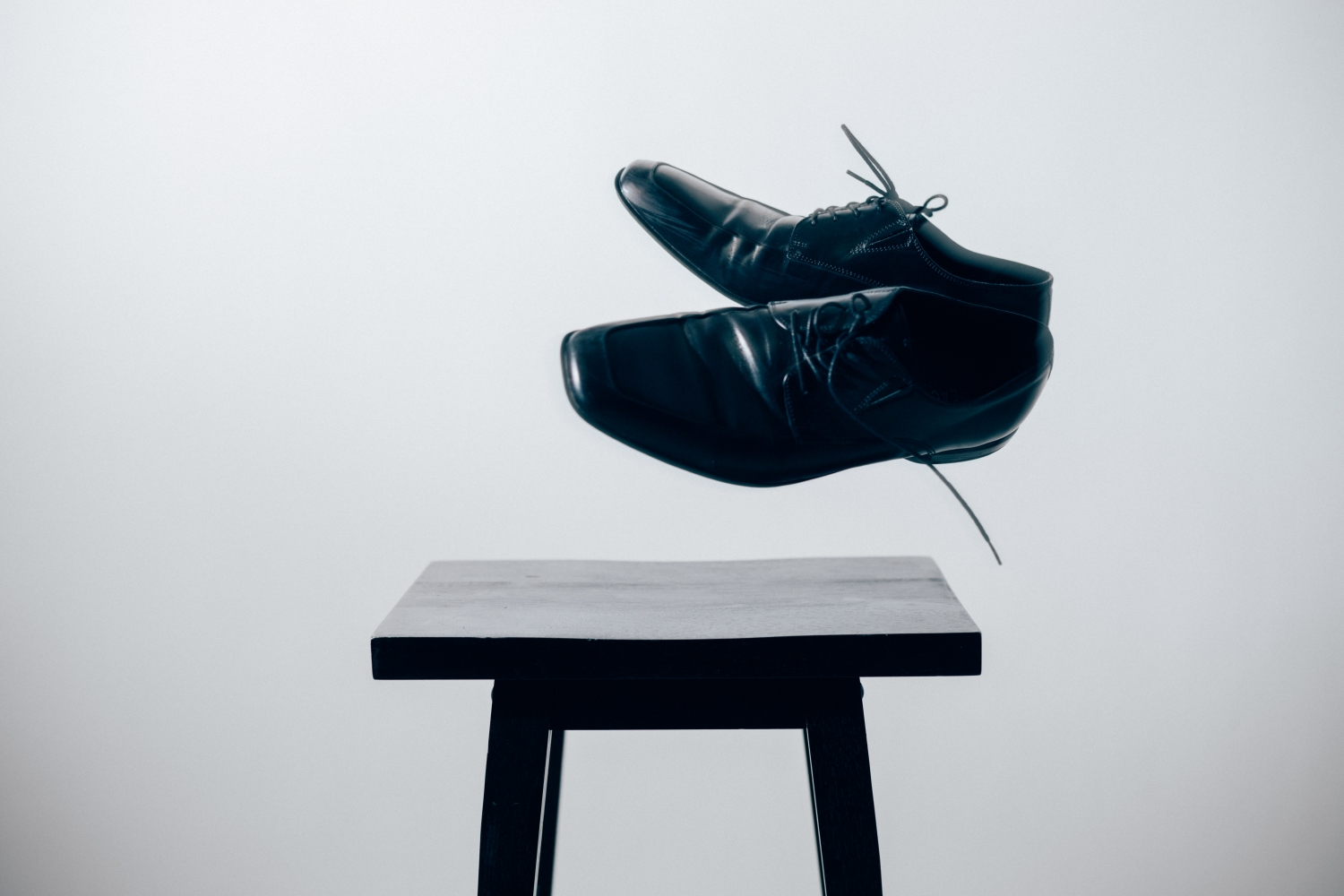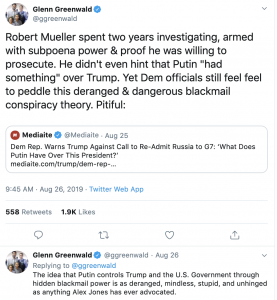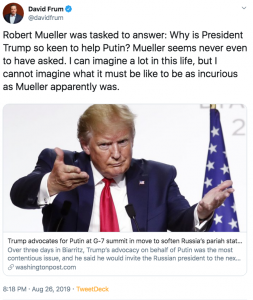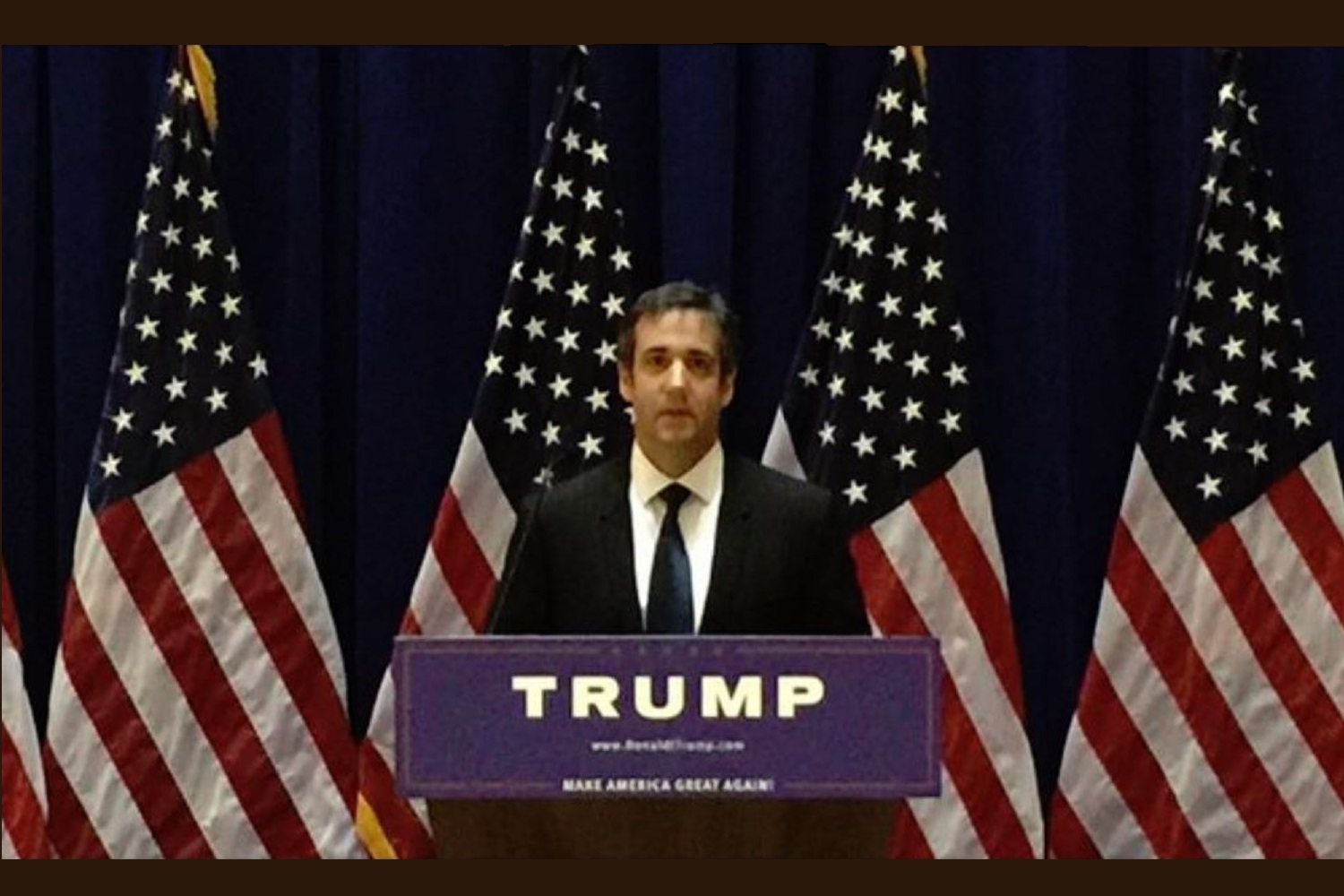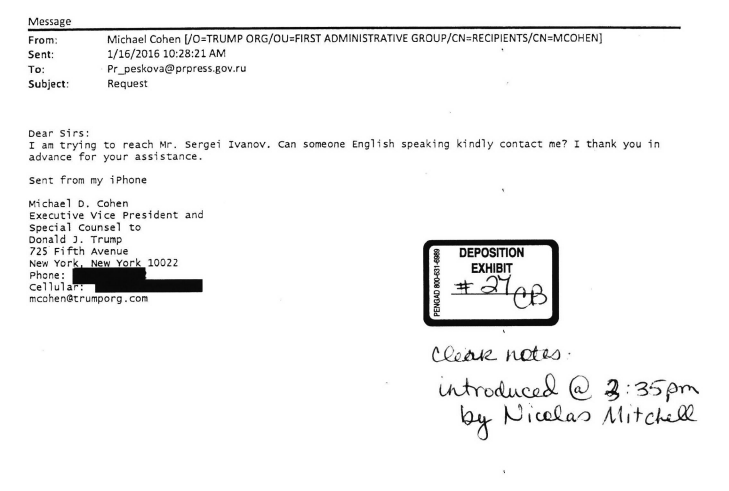[NB: Check the byline. A new Ukraine-oriented timeline appears at the bottom of the text. Updates will be noted in the text or at the bottom of the post. /~Rayne]
In my last post about the whistleblower complaint we were left with unresolved questions, including:
Q1 — What constitutes an “urgent concern” validated by the Intelligence Community Inspector General as credible?
Q2 — What constitutes an unlawful act that would compel a whistleblower to file a complaint if the president can declassify information at will?
Q3 — What kind of unlawful act characterized as an “urgent concern” could occur as a “promise” in communications with a foreign leader?
Q4 — How does the existing timeline frame this “promise”?
Q5 — Who is the “higher authority” who ordered the ADNI not to turn over the whistleblower complaint to the HPSCI, obstructing investigatory oversight?
Since then the Washington Post published another article linking the complaint to a phone call about Ukraine. It only partially answered our questions.
A1 — We have to assume the criteria the IC IG used to determine the concern as credible will eventually be revealed; the House is already asking about the determination. We still do not know what about the complaint constituted an “urgent concern” though the use of our foreign policy to further a presidential re-election campaign is definitely a concern.
A2 — The corrupt acts, based on WaPo’s two articles so far, appear to be
-
- conspiracy
- solicitation of bribery or extortion
- violation of campaign finance laws (receiving a thing of value from a foreign entity)
- misappropriation of federal funds for personal campaign use
- self-dealing (not a crime per se but an abuse of power)
De-classification of information doesn’t appear to be involved so far.
A3 — The “promise,” depending on what it is, could foment increased hostilities against a NATO ally or allies, unless there was another quid pro quo involved intended to offset and tamp down friction. If Trump promised to deliver financial aid to Ukraine only on completion of solicited performance by Ukraine’s president, was there another promise between Trump and Putin that Ukraine would not be punished for receiving the financial aid? Did a second promise make this situation a more “urgent concern,” or was it the risk of hostilities that did so?
A4 — The timeline appears flexible but dependent upon Ukraine both delivering to Trump’s agent, Rudy Giuliani, and within a possible budget and/or campaign deadline.
A5 — Obviously the “higher authority” is Trump or someone who reports directly to Trump, now that we know he’s the one who badgered Zelensky eight times in a single phone call. Authority doesn’t go any higher.
We still have open, unresolved questions. An investigation could answer them (although Trump and his henchman Rudy Giuliani appear intent on dumping it all out in the open on their own).
An impeachment inquiry would work best because it would have the constitutional clout necessary to overcome obstruction this administration has repeatedly demonstrated in response to other subpoenas to non-impeachment related inquiries.
And an impeachment inquiry is wholly appropriate to the overarching criminal behavior we see unfolding in this case: yet another conspiracy to defraud the United States, this time by conspiring with Ukraine’s president to obtain illegal foreign aid for campaign purposes using taxpayer money.
There are no more rational, non-corrupt excuses the House Democratic leadership can offer for failing to move directly to an impeachment inquiry.
~ ~ ~ ~ ~ ~
Timeline — this version includes foreign policy items related to Ukraine in indigo blue font; some may reflect the tensions between Ukraine and Russia. This timeline is subject to additions/revisions.
19-AUG_2016 — Ukrainian journalist and member of parliament Serhiy Leshchenko revealed secret payments outlined in the ‘black ledger of the Party of Regions’ showing payments made by the former pro-Russian president Viktor Yanukovych to Trump campaign chairman Paul Manafort.
________
10-MAY-2017 — Trump met Russian Foreign Minister Sergey Lavrov and Russian ambassador to the US Sergey Kislyak in the Oval Office.
15-MAY-2017 — Washington Post reported Trump revealed code word level classified information to Lavrov and Kislyak during Oval Office meeting. The information covered ISIL’s bomb-making capabilities and may have exposed allies’ intelligence gathering means and methods.
XX-MAY-2017 — Decision made to exfiltrate key Russian asset. Unclear exactly when decision made or when exfiltration occurred, only that it happened after the Oval Office meeting with Lavrov and Kislyak, and before the G20 meeting in Hamburg, Germany.
7/8-JUL-2017 — Trump meets Putin at G20 meeting in Hamburg, Germany.
11-JUL-2017 — European Union’s 28 member states formally endorsed the EU-Ukraine Association Agreement, effective September 1.
30-OCT-2017 — Paul Manafort, former Trump campaign manager, indicted.
________
09-APR-2018 — John Bolton begins as National Security Adviser.
30-APR-2018 — U.S. State Department confirmed that Washington delivered thirty-five Javelin anti-tank launchers to Ukraine.
02-MAY-2018 — Ukraine had ceased cooperation with the Special Counsel investigation, according to NYT; “‘In every possible way, we will avoid irritating the top American officials,’ one Ukrainian lawmaker says. ‘We shouldn’t spoil relations with the administration.'” Ukraine had also halted its money laundering investigation into former President Viktor Yanukovych, who may have used stolen Ukrainian taxpayer funds to pay convicted former Trump campaign manager Paul Manafort to aid him in winning in Ukraine.
15-MAY_2018 — Russia’s President Putin opened a new bridge linking southern Russia to Crimea; Ukraine’s president Poroshenko said it was an attempt to legitimize the occupation of Crimea while Ukrainian critics said the bridge project violates international law. The bridge was built following the illegal 2014 annexation of Crimea by Russia.
16-JUL-2018 — U.S.-Russia Summit meeting in Helsinki, Finland; Trump meets with Putin.
XX-JUL-2018 — Coats expressed opinion differing from Trump’s after Helsinki summit. Rumors began about Trump replacing Coats.
09-OCT-2018 — Ambassador to the U.N. Nikki Haley announced her resignation; effective date 31-DEC-2018. [UPDATE-1]
11-OCT-2018 — Ecumenical Patriarchate of Constantinople recognized the independence of the Ukrainian Orthodox Church, praised by Ukraine but protested by Russia. The move by the patriarchate heightened tensions between the two nation-states.
25-NOV-2018 — Russia seized three Ukrainian navy ships, injuring six crew after firing on them in the Kerch Straits of the Black Sea near Crimea. The attack violated a 2003 treaty which designated the Kerch Strait and Sea of Azov as shared territorial waters. US representative Nikki Haley called the incident an “outrageous violation of sovereign Ukrainian territory” during an emergency U.N. Security Council meeting.
26-NOV-2018 — Ukraine implemented martial law for 30 days in response to the Kerch Straits event, due to concerns over a Russian invasion.
26-DEC-2018 — Martial law in Ukraine ended, to allow adequate time before the country’s elections.
31-DEC-2018 — Volodymyr Zelensky, a TV producer who starred in a series playing the role of President of Ukraine, announced his candidacy for Ukraine’s presidency.
________
29-JAN-2019 — Coats testified before Senate Intelligence Committee; he said North Korea “is unlikely to completely give up its nuclear weapons and production capabilities,” in contrast to Trump’s claims that Kim Jong-un has committed to denuclearization.
XX-FEB-2019 — Trump discussed replacements for DNI.
05-MAR-2019 — U.S. Ambassador to Ukraine Marie Yovanovitch criticized Ukraine’s record on corruption; she noted the country’s high court’s decision weakens Ukraine’s National Anti-Corruption Bureau.
20-MAR-2019 — The Hill’s John Solomon interviewed Ukraine’s prosecutor general Yuriy Lutsenko; Lutsenko claimed Amb. Yovanovitch gave him a do-not-prosecute list during their first meeting. State Department denied this claim in an email to Radio Free Europe.
~28-MAR-2019 — In ‘early 2019’, Giuliani met with Ukraine’s prosecutor general Yuriy Lutsenko in New York (exact date TBD).
31-MAR-2019 — Ukraine’s first run-off presidential election narrowed down the field to the incumbent Petro Poroshenko and Volodymyr Zelensky.
21-APR-2019 — Volodymyr Zelensky won Ukraine’s presidential election over Petro Poroshenko, 73.22% to 24.45% of the vote. 12% of the population were unable to vote due to the conflict with Russia in Donbass region.
21-APR-2019 Trump called and congratulated Zelensky; the call was noted in a late evening/early morning tweet by U.S. Special Representative to Ukraine Kurt Volker:
25-APR-2019 — After two years of indecision, former VP Joe Biden formally launched his campaign for POTUS. [UPDATE-4]
07-MAY-2019 — Amb. Yovanovitch was recalled — removed from her position.
09-MAY-2019 — Giuliani said he intended to meet with President-elect Zelensky in Ukraine to push for an investigation into the release of negative information about Paul Manafort as well as former VP Joe Biden’s efforts to remove Ukraine’s general prosecutor. [UPDATE-2 — date and link changed from CNN 10-MAY to NYT 09-MAY (byline: Ken Vogel)]
10-MAY-2019 — Senator Chris Murphy (D-CT) made an official request of the Senate Committee on Foreign Relations to investigate Giuliani’s influence operation in Ukraine. [UPDATE-2]
11-MAY-2019 — Giuliani reverses his decision and says he won’t go to Ukraine to meet with Zelensky.
20-MAY-2019 — Date Zelensky assumes office of presidency. [UPDATE-2]
21-MAY-2019 — Lawyer and film producer Andriy Yermak appointed aide to Ukraine’s Zelensky.
24-MAY-2019 — Trump issued a directive allowing Attorney General William Barr to declassify any intelligence that sparked the opening of the Russia investigation.
11-JUN-2019 — Ukraine’s president Zelensky signed a motion for Ukraine’s parliament to dismiss prosecutor general Yuriy Lutsenko, an ally of former president Poroshenko. Lutsenko resisted, saying he would step down after the July 21 parlimentary elections.
11-JUN-2019 In an interview released on Thursday, June 13, Trump told ABC’s George Stephanopoulos,
“I think you might want to listen, there isn’t anything wrong with listening,” Trump continued. “If somebody called from a country, Norway, [and said] ‘we have information on your opponent’ — oh, I think I’d want to hear it.”
20-JUN-2019 — In retaliation for downing a U.S. drone, Trump approved strikes on Iran which were abruptly aborted.
~11-JUL-2019 — Date TBD. On or about this time, Giuliani had a phone meeting with Zelensky’s adviser, Andriy Yermak.
22-JUL-2019 — Zelensky’s Servant of the People wins Ukraine’s parliamentary elections.
24-JUL-2019 – Special Counsel Robert Mueller appears before House Judiciary Committee. The same day that GOP Rep. John Ratcliffe (TX-4) used his time to question Mueller to accuse Mueller of breaking DOJ regulations; CNN reported that “Ratcliffe has been under consideration for a job within the Trump administration, sources told CNN, including an intelligence or national security role.”
25-JUL-2019 — Trump talked with Ukraine’s Zelensky on the phone “to congratulate him on his recent election.” Ukraine’s English-language readout of this call said Trump discussed “investigations into corruption cases that have hampered interaction between Ukraine and the U.S.A.” (This call is the subject of whistleblower complaint.)
28-JUL-2019 — Coats’ departure and John Ratcliffe nominated as replacement announced by Trump via Twitter.
02-AUG-2019 — Ratcliffe withdraws from consideration.
~02-AUG-2019 — Trump administration asked ODNI for a list of all ODNI employees at the federal government’s top pay scale who have worked there for 90 days or more. This was believed to be a search for a new Director of ODNI; others speculated there was an impending personnel shakeup. [UPDATE-2]
08-AUG-2019 — Primary Deputy Director DNI Sue Gordon resigned effective 15-AUG-2019, without additional prior notice, as ordered. Resignation letter without handwritten note.
Copy of former PDDNI’s resignation letter with handwritten cover: ODNI_LTR_08AUG2019
11-AUG-2019 — Giuliani debriefing with two State Department diplomats about his meeting with Ukraine’s Zelensky aide in Madrid, Spain.
12-AUG-2019 — IC IG received the whistleblower compaint, via Schiff’s 10-SEP letter.
15-AUG-2019 — Coats’ last day as DNI.
22-AUG-2019 — Giuliani said the U.S. State Department helped set up his meeting(s) with Zelensky’s aide Yermak, assisting “his efforts to press the Ukrainian government to probe two prominent Democratic opponents of the president: former Vice President Joe Biden and the Democratic National Committee.”
26-AUG-2019 — IC IG transmitted the whistleblower complaint to the Acting DNI, via Schiff’s 10-SEP letter.
26-AUG-2019 — GOP appointee Matthew Peterson resigned from Federal Election Commission; effective date of resignation 31-AUG-2019. FEC no longer has a quorum with his departure. [UPDATE-1]
27-AUG-2019 — Russia barred a visa for entry to Senators Chris Murphy (D-CT) and Ron Johnson (R-WI) for a trip planned in early September. Senator Mike Lee (R-UT) received clearance and a visa, however. Johnson, Murphy and Lee are all members of the Senate Foreign Relations Committee; Johnson is the subcommittee chair for Europe & Regional Security Cooperation. The three senators voted in favor of the Russia sanctions bill. [UPDATE-2]
28-AUG-2019 — John Bolton met with Ukraine’s Zelensky (video). [UPDATE-2 – date revised, video link added.]
28-AUG-2019 — Bolton met his counterpart, Oleksandr Danyliuk, Ukraine’s head of the National Defense and Security Council; Bolton told Danyliuk that the U.S. support for Ukraine against Russian-backed separatists in contested eastern Ukraine would ‘intensify’. [UPDATE-2]
Late AUG-2019 — U.S. suspends $250M military aid for Ukraine – exact date TBD. Reuters’ report on 29-AUG-2019 said ‘may’ suspend’. [UPDATE-2 – remove and replace with following item.]
29-AUG-2019 — Trump stalled the $250M military assistance provided under the Ukraine Security Assistance Initiative by asking Bolton and Defense Secretary Mark Esper to review the package. Defense Department had already reviewed the aid and supported it. [UPDATE-2]
29-AUG-2019 — Ukraine’s Prosecutor General Yuriy Lutsenko submitted his resignation.
30-AUG-2019 — Trump tweeted a high-resolution satellite image of Iran’s failed Safir SLV launch while claiming the U.S. was not involved. The image may have been classified and ‘insta-declassified’ by Trump.
01-SEP-2019 — VP Mike Pence flew to Poland and met with Poland’s president Andrzej Duda and Ukraine’s Zelensky, discussing security and energy issues (remarks issued by White House). Per pool reporter, the meeting included National Security Adviser John Bolton and Energy Secretary Rick Perry; Pence avoided answering media questions whether the Trump administration would still allocate $250M for security aid.
01/02-SEP-2019 — US Special Rep. for Afghanistan Zalmay Khalizad met with Afghan president Ashraf Ghani in Kabul where the Taliban, Afghan government and the U.S. had “reached an agreement in principle” toward an eventual “total and permanent cease-fire.”
02-SEP-2019 — During news conference after the meeting with Duda and Zelensky in response to a question by AP’s Jill Colvin, Pence denied speaking about Joe Biden with Zelensky:
“Well, on the first question [about Biden], the answer is no. But we — with President Zelensky yesterday, we discussed — we discussed America’s support for Ukraine and the upcoming decision the President will make on the latest tranche of financial support in great detail.”
02-SEP-2019 — Deadline for ADNI to forward the complaint to Intelligence committees of Congress passes without a referral, via Schiff’s 10-SEP letter.
03-SEP-2019 — Sen. Murphy and Johnson began a 5-day trip to Serbia, Kosovo, Ukraine, and Germany. [UPDATE-2]
03-SEP-2019 — Russian media outlet Tass reported that Russian Deputy Foreign Minister said the U.S. and Taliban “insist that Russia must be present in one capacity or another at the possible signing of the agreements that the parties are working on now.”
04-SEP-2019 — Secretary of State Mike Pompeo refused to sign the agreement with the Taliban.
07-SEP-2019 — Russia and Ukraine completed a major prisoner swap; some of the prisoners included Ukrainian sailors seized during the Kerch straits incident.
09-SEP-2019 — CNN broke story of a CIA asset extracted from Russia in 2017; followed by NYT on the 9th (and then NBC’s Ken Dilanian appears at the asset’s house…)
09-SEP-2019 — Trump asked for Bolton’s resignation and tweeted about it the next morning.
09-SEP-2019 — Intelligence Community Inspector General (IC IG) sent a letter to the House Permanent Select Committee on Intelligence, notifying it of a whistleblower complaint which it had determined to be credible and a matter of “urgent concern.”
10-SEP-2019 — Bolton tells Fox’s Brian Kilmeade by text that he’d quit.
10-SEP-2019 — HPSCI Rep. Adam Schiff requested the full, unredacted complaint, the IC IG’s determination about the complaint, and all documentation of ODNI’s action regarding this complaint, including correspondence with the White House.
11-SEP-2019 — Bloomberg reported Bolton pushed back Monday-Tuesday at Trump over Iran sanctions; Bolton wanted maximum pressure while Trump wanted to encourage a meeting with Iran’s Rouhani later in September.
12-SEP-2019 — Schiff and ADNI “discussed at length” the need to protect the whistleblower from any retaliation, including if the whistleblower subsequently comes forward to the committee with his/her concerns, via Schiff’s 13-SEP letter.
13-SEP-2019 — Zelensky said in a press conference that not only was the U.S. going to send $250M in military aid but an additional $140M.
13-SEP-2019 — ODNI declined the request, claiming the request as “it involves confidentially and potentially privileged communications by persons outside the Intelligence Community.”
13-SEP-2019 — HPSCI subpoenaed acting DNI Joseph Maguire for materials declined by ODNI.
17-SEP-2019 — Deadline, materials responsive to subpoena must be turned over by this date; Maguire failed to do so.
19-SEP-2019 — Date Maguire was compelled to appear before Congress in a public hearing. The Intelligence Community Inspector General Michael Atkinson appeared before the House Intel Committee in a closed door session.
19-SEP-2019 — Giuliani denied asking Ukraine to investigate Joe Biden moments before admitting that he had done just that.
20-SEP-2019 — Senator Murphy published a press release about the whistleblower complaint, renewing his call for a Senate Foreign Services Committee investigation into Giuliani’s efforts to influence Ukraine. [UPDATE-2]
20-SEP-2019 — Russian armed forces bombarded front along western edge of contested Donbas territory.
22-SEP-2019 — During an interview on Meet the Press, Treasury Secretary Steve Mnuchin can’t explain where the additional $140M in aid for Ukraine came from.
22-SEP-2019 — In front of press on the White House lawn, Trump said he had spoken with Zelensky about Biden on July 25 in a congratulatory call. Later in the day he indicated he might allow a transcript of the call to be published.
23-SEP-2019 — TK
Future dates:
26-SEP-2019 — Maguire is scheduled to testify before the House Intelligence Committee in a public hearing.
30-SEP-2019 — Federal fiscal year ends on September 30.
Much of the timeline in black font above is the crowdsourced timeline from September 14-15. Note how much of this latest version is Ukraine-Russia, and how little we saw going on as we considered what a whistleblower might have filed a complaint about after July 25.
Is it at all possible there are other influence operations underway at the same time to which we are equally blind, asking for help from other nation-states to shape the outcome of Trump’s 2020 run for re-election?
If you have any relevant events with dates which should be added to this timeline, please share them in comments. I’m especially interested in dates nailing down Giuliani’s meetings with any Ukrainians including former prosecutor general Lutsenko and Zelensky aide Yermak.
The sad part of all the noise generated by Trump (corruption!-corruption!-corruption!) and Giuliani (Biden!-Biden!-Biden!) is that they are actively trying to corrupt an ally’s president who ran on an anti-corruption platform, possibly unwitting collateral damage.
If Zelensky agreed to a quid pro quo knowing that Trump was using him to further his 2020 re-election, Zelensky is compromised.
_____
UPDATE-1 — items added/changed noted in the timeline.
UPDATE-2 — 3:45 p.m. EDT 24-SEP-2019 — items added/changed noted in the timeline.
UPDATE-3 — items added/changed noted in the timeline.
UPDATE-4 — 12:00 a.m. EDT 25-SEP-2019 — item added, noted in timeline.



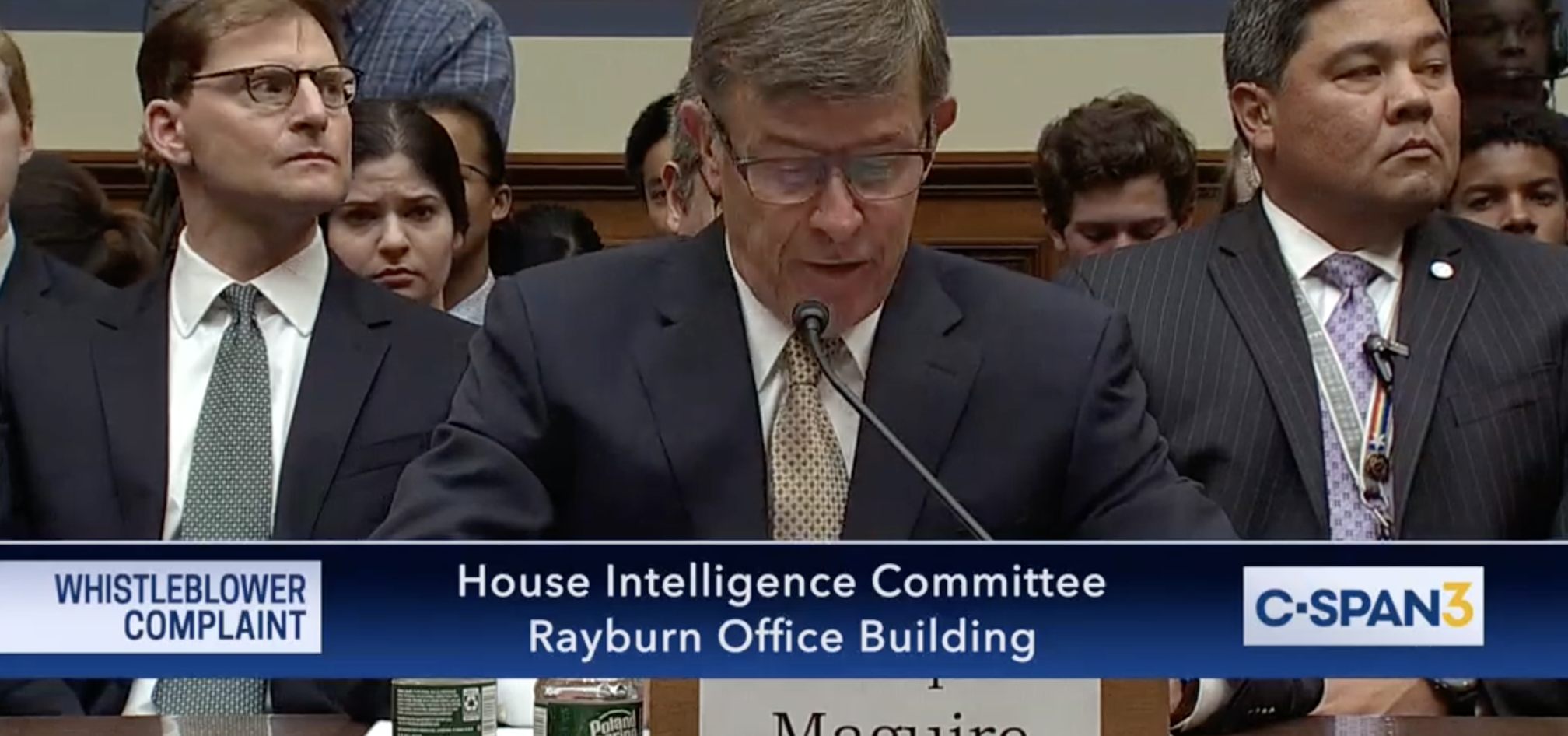
![[Photo: Emily Morter via Unsplash]](https://www.emptywheel.net/wp-content/uploads/2017/08/Question_EmilyMorter-Unsplash.jpg)
